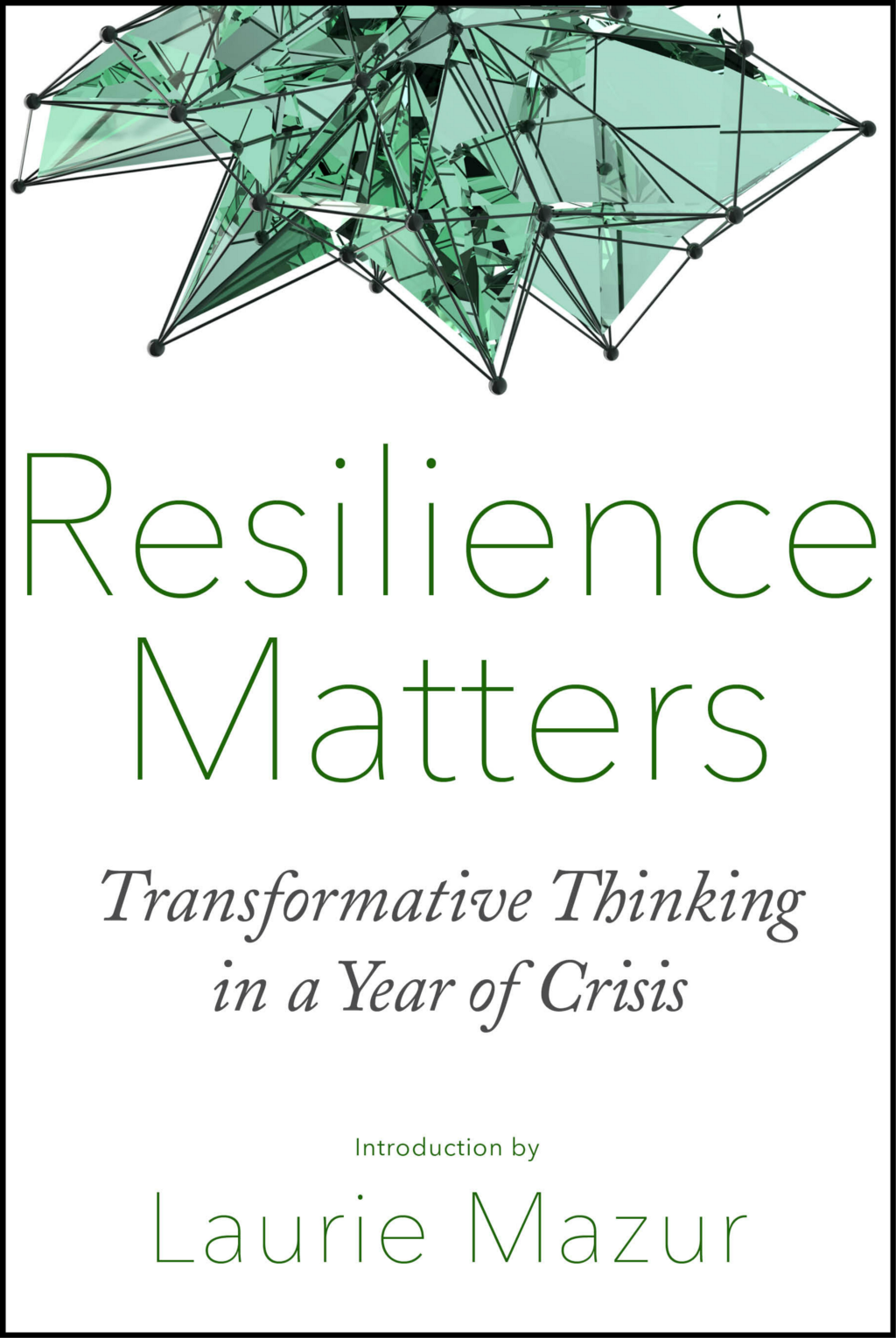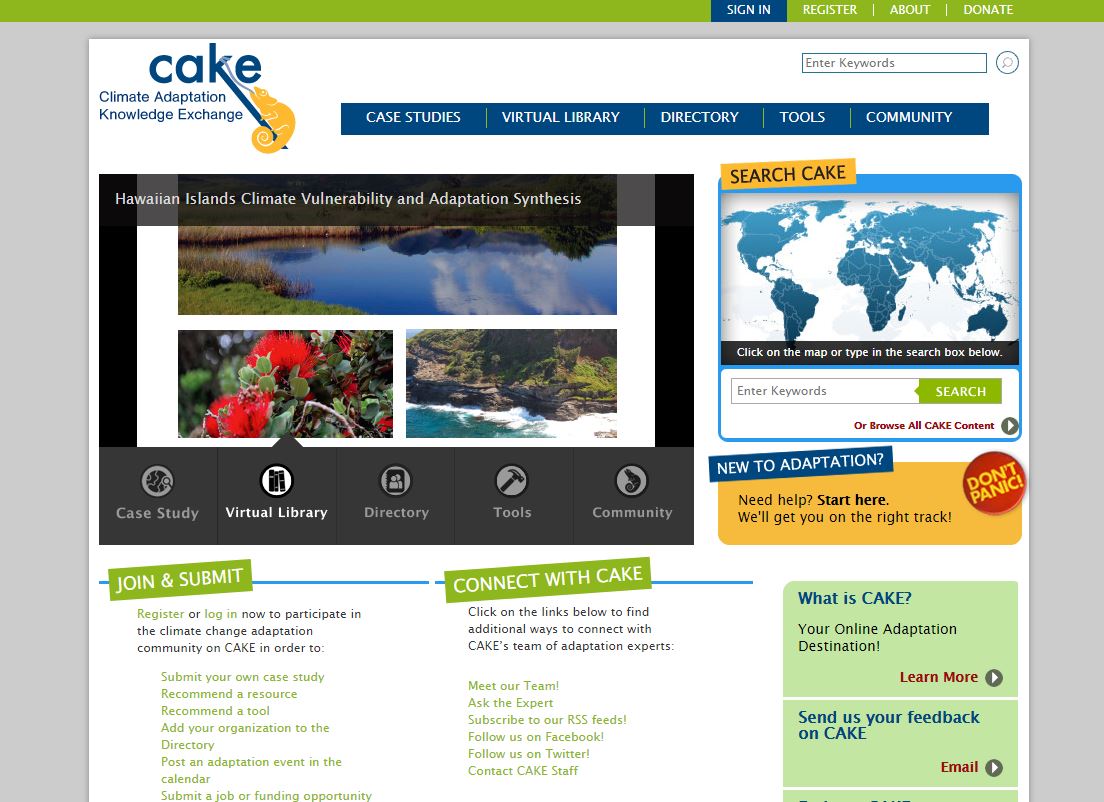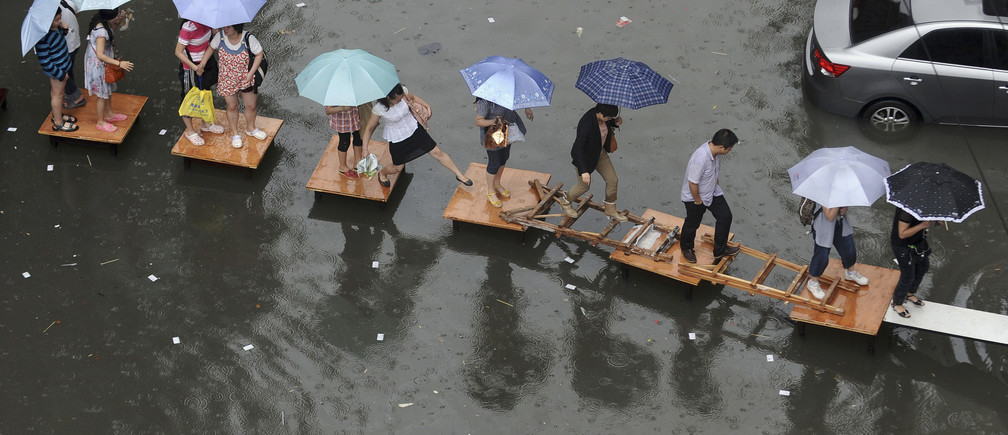Fans of Island Press (myself included) know of that, beyond their publication of a great diversity of books, the non-profit has a mission, to “provide the best ideas and information to those seeking to understand and protect the environment and create solutions to its complex problems”. In this regard, beyond publication around these themes, they have a number of programs focused on hot topics, including Climate Change, Sustainable Communities, and Resilience. One of these, the Urban Resilience Project was launched in 2013, starting with a survey of literature, and a goal “…to imagine and inspire the sustainable, equitable, resilient cities of the future. We bring together thought leaders with a broad range of expertise to generate and cross-pollinate ideas.” Publications include Another of these resources of the past is the The Kresge Foundation funded urban resilience publication, Bounce Forward, which provides brief information on urban resilience in the age of climate change”.
A focus on resilience has been the ongoing publication of essay collections under the banner of Resilience Matters, both in 2015 and 2016. The most recent iteration in 2018 is ‘Resilience Matters: Transformative Thinking in a Year of Crisis‘, which collects “…short-form articles advancing a holistic, transformative approach to thinking and action on urban resilience in the era of climate change, grounded in a commitment to sustainability and equity.”

A quick perusal highlights a couple of items. First is that the conceptual span of resilience is broad, encompassing climate change, health, food, water, urbanism, infrastructure, environmental justice, and energy. Second is that there’s a lot of thinking about these topics in fields as diverse as biology, planning, environmental policy, medicine, economics, transportation experts, writers and more. We can all use a primer of resilience, maybe just to avoid confusion about what the term means, and to avoid using it as a hollow buzzword. As the editor of the Urban Resilience Project, Laurie Mazur writes in the Introduction, “A Year of Crisis and Resistance”. Quoting the Center for Earth, Energy and Democracy’s Cecilia Martinez: “When the political system does not provide for the common good, those that deal with the consequences have to be creative, innovative, and action-oriented. And we do see that. All kinds of communities are coming together to try and figure out how to build systems that are both environmentally sustainable and equitable.” Mazur adds: ”In these pages, you will see what those systems can look like.”
I’ve yet to fully dig in to all the essays, but what I’ve read has been pithy and informative, including the role of scientists in the public dialog, especially around climate change, the rampant political dismantling happening by the current administration, and more. Some were previously published, others specific to this publication. A throw-away essay here or there, is followed by a great one on turning neighborhoods into resilience hubs, or one of my favorites, Eric Sanderson and John Waldman’s contribution, “What JFK Fliers Owe Jamaica Bay Wildlife”, where they discuss the impacts of filling in wetlands to build the airport, what was lost in this process, and how the balance of modern city living and mobility needs to give back to the larger ecosystems, through a fee-based policy levied on travelers. As they conclude:
“Nature is both too humble to ask and too unpredictable when provoked. If we want to build resilience for both the human and natural economy, we need to pay back what we’ve taken.
And that, in a nutshell, is sort of the beauty, in the end you spend a few minutes absorbing some info, and the diversity of voices and the currency of the information gives you some context, and perhaps incites you to seek and and discover more. The concept of smaller essays is nice, as you can pick and choose topics, but also get up to speed with unfamiliar areas without taking a lot of time. For those with a more auditory bent, they also have a range of podcasts focusing on topics such as green infrastructure, environmental justice, wildfires, and more.
Along similar lines from Island Press is their creation along with EcoAdapt of the Climate Action Knowledge Exchange, which “a shared knowledge base for managing natural and built systems in the face of rapid climate change.”

Through both the internal research endeavors and connecting people around topics, it’s heartening for a publisher to invest not just in the books they are creating, but in the larger dialog around things that matter in the grander sense. Island Press, perhaps in their capacity as a non-profit, addresses this well, and shows that books and publishers can be agents for change, disseminating ideas and helping people making connections to big issues.
HEADER: Image from World Economic Forum – The Importance of Urban Resilience

Greetings friends of Landscape and Urbanism. Here is a proposal that might be of interest to you:
A RESILIENT VIRTUAL CITY TO SAVE THE WORLD
Despite the high quality of life that some of the so-called developed nations have achieved, the truth is that the world, considered as a group of countries located in a fragile and geographically limited biosphere, is threatened with extinction due to human conflicts and the depredation of the environment.
Notwithstanding the good and very important actions taken by groups and individuals in favor of a better world, deterioration at all levels continues to increase dangerously.
After more than thirty years dedicated to these matters, and since “an image is worth a thousand words” we have come up with a novel idea of designing a self-sufficient and sustainable model city that has all the characteristics of infrastructure and organization inherent to the peaceful and sustainable society that we want for ourselves and our descendants, whose representation in the form of scale models, animated series, feature films, video games and theme parks, would constitute a model to follow to generate the necessary changes.
The prototype that we present has some characteristics that are opposed, sometimes in a radical way, to the religious, economic, political and educational traditions and customs that have been transmitted from generation to generation, yet are the causes of the aforementioned problems, and therefore must be transformed.
If you are interested in knowing about this project, or even participating in it, we invite you to visit our website https://elmundofelizdelfuturo.blogspot.com/ (written in Spanish and English), where we are working in that sense.